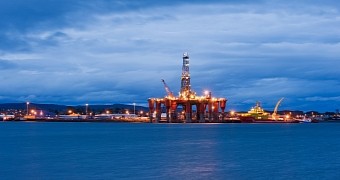Scotland has to make a big decision today as registered voters of ages 16 and up head for the polling stations to say whether they wish for Scotland to be an independent country or if they want for it to continue alongside the United Kingdom.
While the Scottish government claims that Scotland would be better off without the UK, saying that its natural riches could turn it into one of the wealthiest nations in the world, the opposition argues that things will get worse for the country and that the downfall will happen fast.
Banking on the oil reserves
One of the main arguments supporters of the independence have is that Scotland’s North Sea has huge oil and gas reserves. The tax take from Scotland’s share is believed to be able to help the country economically.
First Minister Salmond has said that even a tenth of the revenues, which would be about £1 billion ($1.63 billion / 1.26 billion) per year, could create an oil fund that’s similar to the one Norway operates. This could translate into a £30 billion ($49 billion / €38 billion) sovereign wealth over a generation.
The trick with this logic is the fact that there are an estimated 30 to 40 years of production remaining in the pockets underneath the sea’s ground, which means that the country’s reliance on this particular wealth potential is limited at best.
The currency issue
Another issue that the two camps have been fighting over is the currency. While the Scottish government wants to be able to keep the pound and remain, in part, in the currency union with the rest of the UK, the opposition doesn’t agree.
The main UK parties have already shaken their heads at the thought and chances are that no British government will change its mind on the topic.
Since the pound may as well be off the table for Scotland if it chooses to be independent, the country won’t even have the comfort of the European Union.
Along with its independence, Scotland would immediately be excluded from the European Union. The government plans to start negotiations to join the EU as soon as possible if the vote is favorable to its plans for independence.
The country won’t even be able to adopt the Euro in the place of the pound due to the regulations inside the Union. First, the country needs to be a part of the European Union and then it has to include its currency in the Exchange Rate Mechanism II. It takes several years for countries to be admitted to the Eurozone, as well as a lot of political and economic stability.
Without the British Pound or the Euro, Scotland would be in a difficult spot to sort out one important element for the economic welfare of the country and its citizens.

 14 DAY TRIAL //
14 DAY TRIAL //